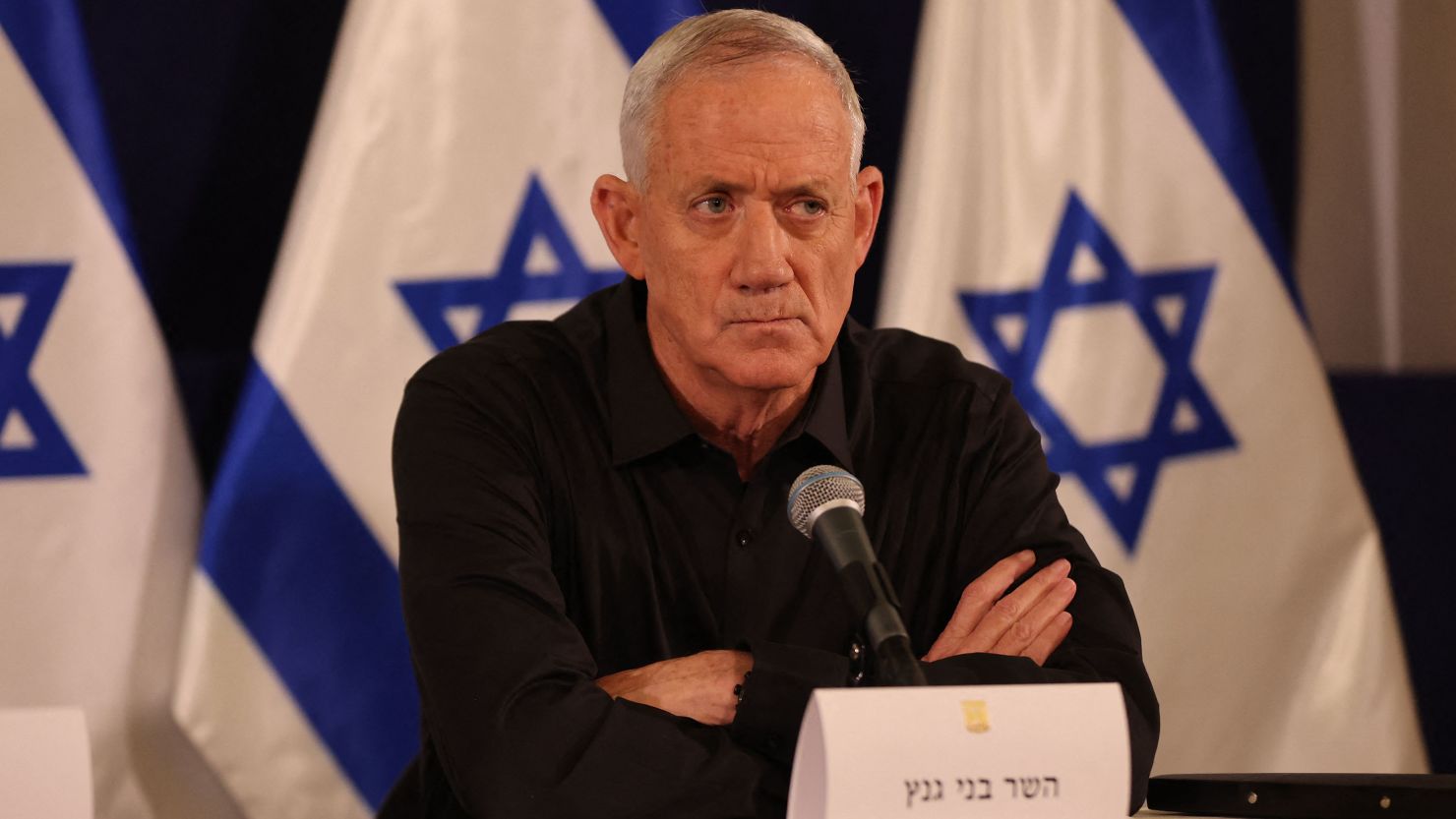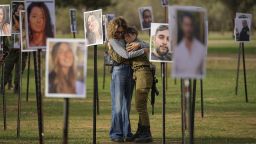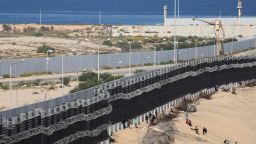Editor’s Note: A version of this story appears in CNN’s Meanwhile in the Middle East newsletter, a three-times-a-week look inside the region’s biggest stories.?Sign up here.
Israel will expand military operations in the southernmost Gazan city of Rafah if hostages held by Hamas are not returned by the start of Ramadan, war cabinet minister Benny Gantz has warned.
“The world must know, and Hamas leaders must know — if by Ramadan our hostages are not home, the fighting will continue to the Rafah area,” Gantz told a gathering of American-Jewish organizations in Jerusalem on Sunday.
“We will do so in a coordinated manner, facilitating the evacuation of civilians in dialogue with our American and Egyptian partners to minimize civilian casualties,” the Israeli minister added.
The Muslim holy month is expected to start on March 10 or 11. Israel believes that 130 hostages remain in Gaza – 101 alive and 29 dead – following Hamas’ October 7 attacks, which killed around 1,200 people in Israel.
Israel’s subsequent war on Hamas has killed more than 29,000 people and injured another 68,000 in Gaza, according to the health ministry in the enclave.
Gantz’s comments appear to be the clearest indication yet of a timeline around an Israeli military operation in the southern Gaza city, where more than 1 million displaced Palestinians are taking shelter near the Egyptian border.
“To those saying the price is too high, I say this very clearly: Hamas has a choice — they can surrender, release the hostages, and the citizens of Gaza will be able to celebrate the holy holiday of Ramadan,” Gantz said.
The comments come amid stuttering talks aimed at securing the release of hostages and a longer-term ceasefire in Gaza. In its latest proposal, Hamas has demanded the gradual withdrawal of Israeli troops from the enclave and eventually a permanent end to the war, as well as the release of Palestinian prisoners in Israel – including those serving life sentences – as part of any hostage deal. Israeli Prime Minister Benjamin Netanyahu has described Hamas’ proposal as “delusional.”
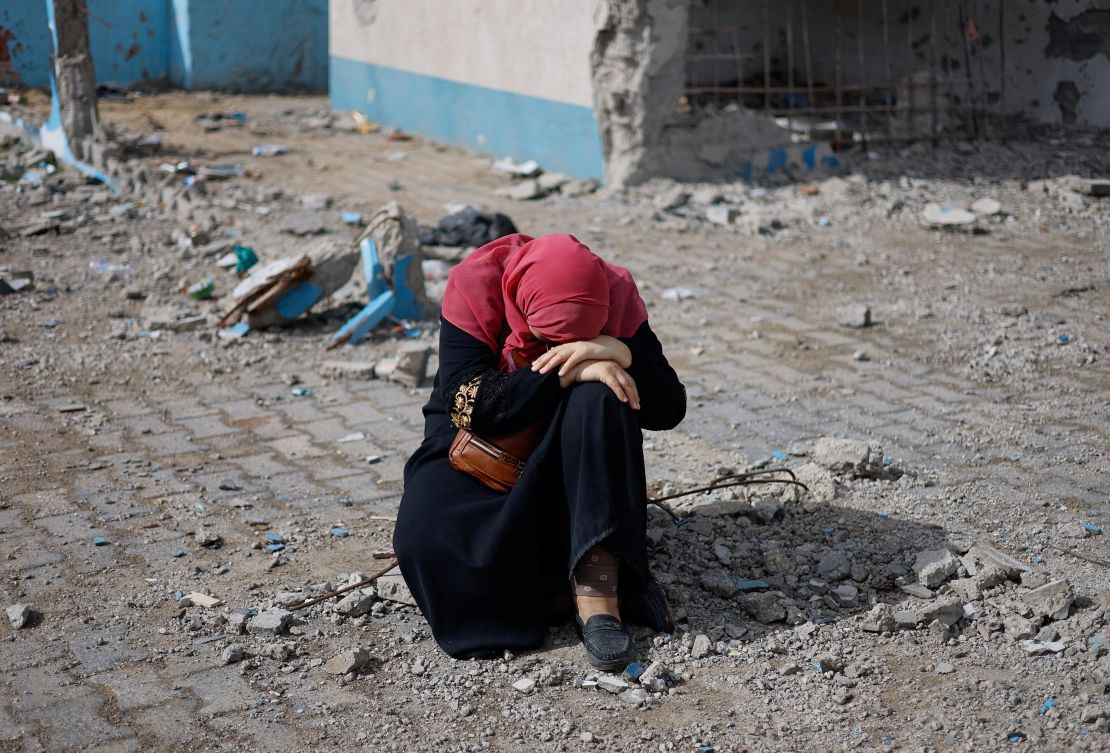
Israel has said it plans to expand its ground operations into Rafah as part of its goal to destroy Hamas after the October 7 attacks. But there is growing concern that the roughly 1.5 million Palestinians sheltering there will have nowhere to go.
Many in the international community, including the United States and the United Nations, have warned against Israel’s operation in Rafah, with UN aid chief Martin Griffiths saying such an offensive could lead to “a slaughter” and leave humanitarian efforts in Gaza “at death’s door.”
Neighboring Egypt has also been on edge over Israel’s possible operation, boosting its security presence at its border with the Gaza Strip with extra troops and machinery, as well as deploying more soldiers at checkpoints leading to the Rafah border.
Egypt’s security buildup comes amid fears of the war spilling over into its territory should Israel begin its operation in Rafah. With more than half of Gaza’s population sheltering just steps away from the frontier, Egypt’s foreign ministry spokesperson has warned that “targeting this area of the strip, which is filled with so many civilians, poses a danger.”
Satellite images also show that Egypt appears to be building a massive, miles-wide buffer zone and wall along its border with southern Gaza, CNN reported last week.
Egyptian Foreign Minister Sameh Shoukry on Sunday denied that there were any kind of preparations taking place at the border, saying the reported activities were “the ordinary maintenance of our border and our border fortification.”
“It is in no way related to providing any camps or shelter on our side of the border,” Shoukry said in an interview with Sky News, stressing that displacing Palestinians out of Gaza would amount to a “liquidation of the Palestinian cause.”
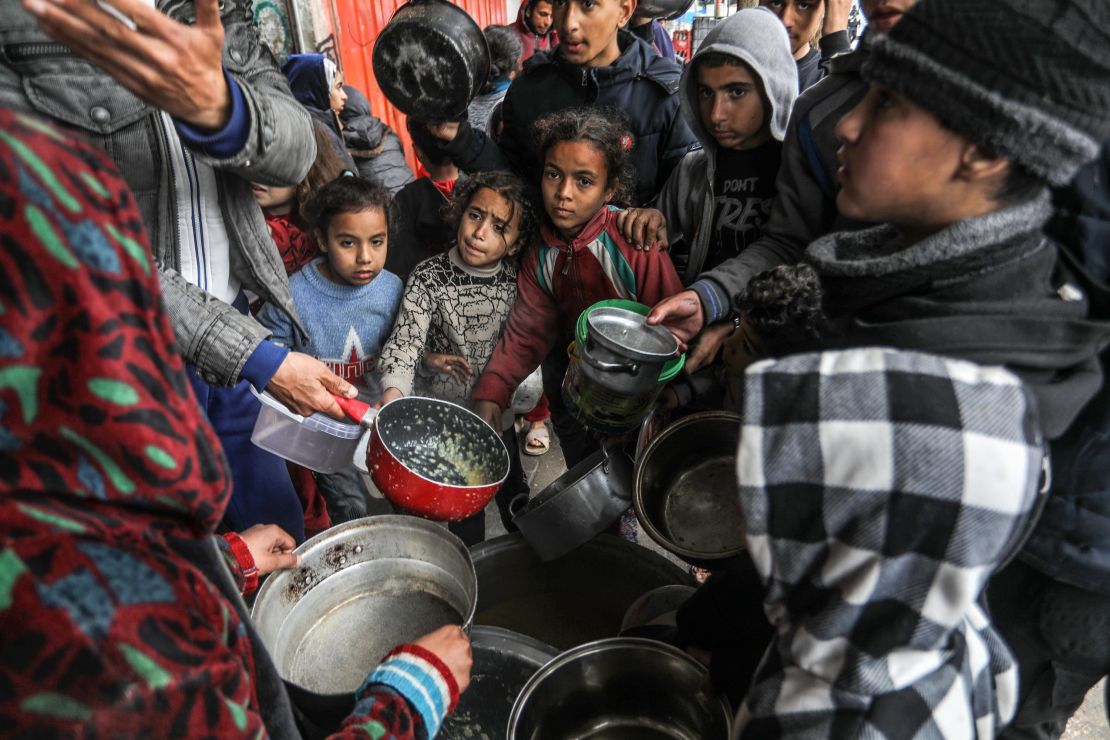
Meanwhile, Israel has continued to press ahead with its operation in other parts of Gaza.
After days of bombardment, Israeli forces last week raided what was the largest hospital still functioning in the enclave, Nasser Hospital in Khan Younis, rendering it “completely out of service” and unable to handle critical cases, the Gazan health ministry said Sunday. Dozens of health care workers were arrested and some 80 patients transferred out of the hospital to an unknown location, a ministry spokesman said. Electricity has been cut off and seven people have so far died as a result, the spokesman added.
CNN cannot independently verify casualty figures in Gaza due to limited access to the area.
The Israeli military said it had credible evidence that Hamas had previously held hostages at the hospital, and that the bodies of deceased hostages may be at the medical complex.
Hamas said it had “no business” in the hospital.
CNN’s Abeer Salman, Alex Stambaugh, Nadeen Ebrahim, Sarah El Sirgany and Paul P. Murphy contributed to this report.


